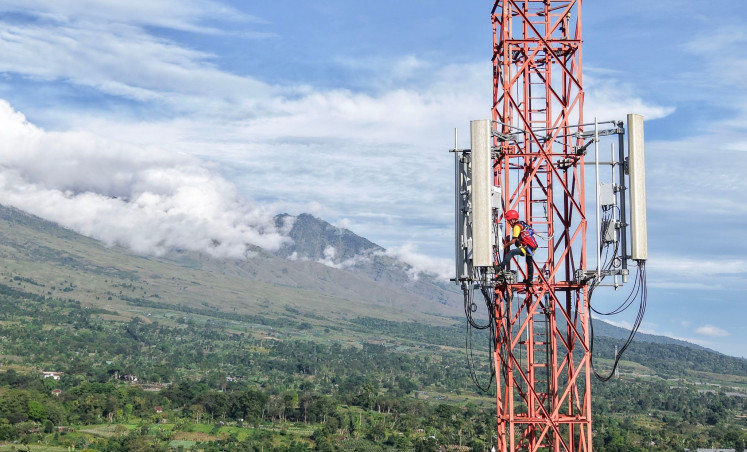Popular Reads
Top Results
Can't find what you're looking for?
View all search resultsPopular Reads
Top Results
Can't find what you're looking for?
View all search resultsThe politics of pragmatism
Adivided House of Representatives will plunge into more unnecessary bickering when it begins its session on Monday
Change text size
Gift Premium Articles
to Anyone
A
divided House of Representatives will plunge into more unnecessary bickering when it begins its session on Monday. The cause for concern is driven by unsettled rifts between elites in the Golkar Party and the United Development Party (PPP), which have dragged on for months.
The magnitude of the wrangling may not match the bitter rivalry of the recent past between the pro-government Great Indonesia Coalition and the opposition Red-and-White Coalition, but internal conflict within Golkar and the PPP, the second and eighth largest parties in the House with 91 and 39 seats, respectively, will nevertheless have an adverse affect on the decision-making process in the legislature.
The pandemonium could start early, when the plenary session to mark the beginning of a new legislative period commences, as each rival faction within Golkar and the PPP will claim to legitimately represent their party.
The threat of disunity also crept toward the National Mandate Party (PAN), following its national congress earlier this month that ended in the defeat of then incumbent chairman Hatta Rajasa. Although he accepted new leader Zulkifli Hasan, Hatta and his supporters immediately formed a mass organization called Harapan Rakyat (The People's Hope), which many speculated was an embryo of a new party.
Golkar and the PPP have tried to resolve their problems via dialogue and then via court, but all efforts to end their disputes have proved ineffective and may have even intensified the acrimony. The internal squabbling centers on the political orientation of elites within these parties in response to last year's change of national leadership.
Both Golkar and the PPP are divided between those members who support President Joko 'Jokowi' Widodo's government, and those who want nothing to do with it. While each choice is justifiable, each also brings risks.
For those opting to be part of the government, the rewards are tangible and lucrative. They will be given various posts, either in the Cabinet or in state enterprises, and will enjoy access to power and financial resources, giving them a lot of opportunities to improve their performance in subsequent regional and national elections. Those opposing the government will be deprived of such privileges and will be forced to go the extra mile to win over voters. This disadvantage partly answers why contenders find it hard to defeat incumbents.
Simply put, political parties supporting Jokowi stand a good chance of increasing their share of the vote in the 2019 elections, while those in opposition may have to wait longer.
The penchant for power and access to financial sources has drawn parties into the politics of pragmatism.
Despite political reform from 1998 onward, most parties have survived because of their pragmatic approach to matters. They may claim to fight for certain religious or nationalist values, but pragmatism is still their unifying factor.
The country's political parties all look very similar. Pragmatism is the only political education they can offer to the public.
As long as parties without ideology remain in control of the country's national political stage, we will continue to live in a pseudo-democracy, which places procedure over substance.










